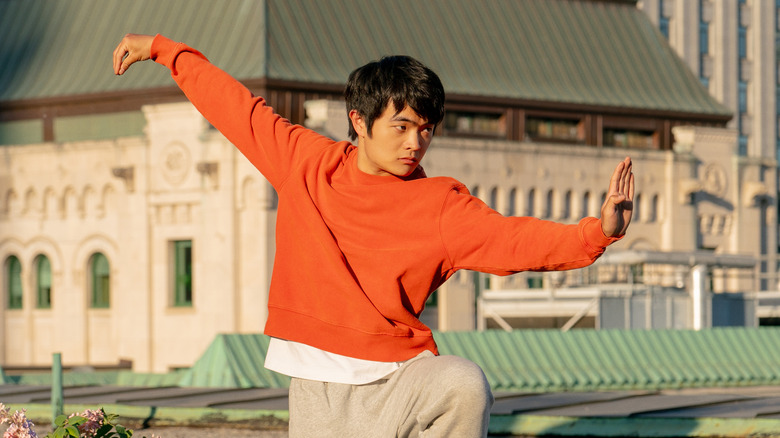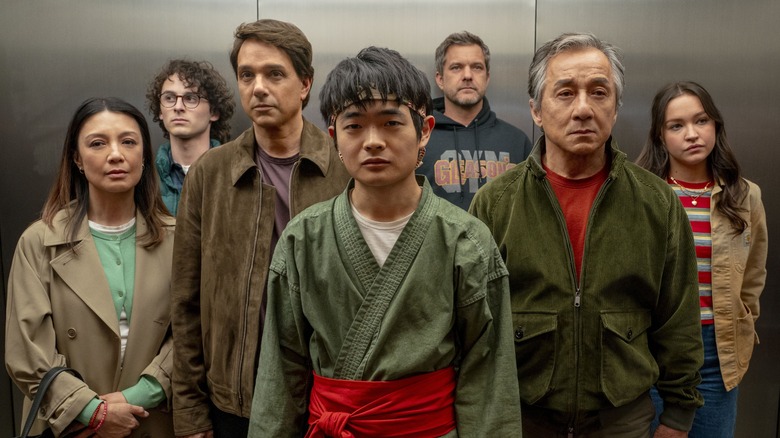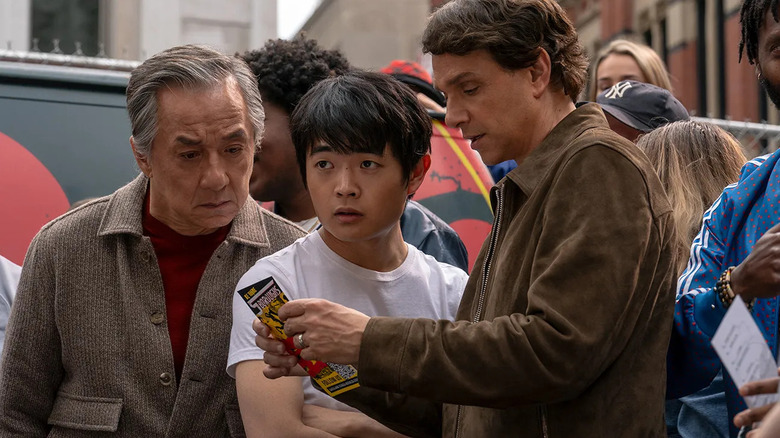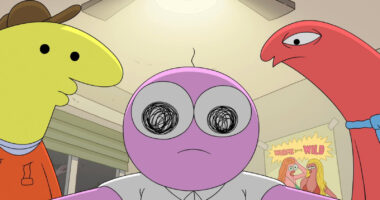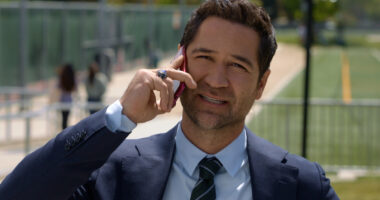Share this @internewscast.com
RATING : 5 / 10
- The best staged fights of the franchise
- An endearing twist on the familiar Karate Kid formula
- The strong first hour is hindered by the fact that this is a legacy sequel
- Jackie Chan & Ralph Macchio are pointless additions to the story
In “Spider-Man: Into the Spider-Verse,” a running gag central to the franchise is introduced right from the start. Each version of the superhero, whether it’s Peter Parker or another civilian alias, experiences a similar origin story, irrespective of when or where it happens. This notion reminded me of watching the uniquely envisioned “Karate Kid: Legends.” The movie, which eventually morphs into a legacy sequel in its final portion, echoes the Miyagi-verse theme. Coincidentally, our new protagonist is even likened to a “Chinese Peter Parker” at one point.
In any location, period, or martial arts style, the protagonists share consistent elements: newly relocated to a city, they encounter bullies, develop romantic interests, and unwillingly have to compete in a martial arts tournament. The implication that every version of the franchise exists within a singular timeline, rather than a multiverse of endless possibilities, feels akin to revealing that all versions of “A Star is Born” occur in the same universe. While it could technically align, the persistent reappearance of specific story similarities does not face any on-screen acknowledgment.
Why couldn’t this just be a reboot?
This would pose no issue if “Karate Kid: Legends” were a standalone story. Interestingly, for the better part of the first hour, it beautifully reinvents a familiar narrative. Young Li Fong (played by Ben Wang) adapts to life in New York after moving from Beijing, where he was under the tutelage of Jackie Chan’s Mr. Han. Already skilled in fighting, Li instead helps out his girlfriend Mia’s (Sadie Stanley) father, a pizzeria owner played by Joshua Jackson, who seeks to fight again to earn money to save his pizzeria from loan sharks. Despite the appealing dynamic and the engaging interactions between the three main characters, at around 45 minutes, Mr. Han inexplicably travels to New York. All signs before suggested he would serve as a remote mentor, offering guidance through occasional phone calls during moments of uncertainty.
Initially, it feels like a forgivable misstep; a remnant of an earlier screenplay that was a direct sequel to the 2010 remake, reconfigured to slot into a new character dynamic. And then, almost as soon as he’s arrived in the Big Apple, Mr. Han declares he’s heading to Los Angeles to visit Daniel LaRusso (Ralph Macchio), who he’s never previously met but has decided will be a great mentor to Li, teaching him Mr. Miyagi’s (Pat Morita) distinctive brand of karate and fusing that style with his own kung fu. If this narrative justification sounds flimsy at best, even on the eve of a new tournament our young hero is forced into fighting, then it feels even more baffling in its execution. We discover that, at some point between the events of “The Karate Kid” and “The Karate Kid: Part II,” Mr. Han went to LA to visit his old friend Miyagi, where he couldn’t stop talking about how taken he was with his young prodigy. 40 years later, he pays a second visit to Miyagi’s former home and forces Daniel to fly across the country to mentor the boy who is to him what Daniel was to his teacher.
It’s an overcomplicated addition, and you can feel Rob Lieber’s screenplay tying itself in knots trying to make it appear natural rather than the result of a studio executive demanding a reboot be transformed into a legacy sequel at the very last minute. Macchio’s inclusion adds nothing, even if an opening flashback to “Part II” badly attempts to convince us his presence in this story represents a full circle moment; he’s such a narrative afterthought, appearing with little over 30 minutes left on the clock, that his addition won’t even trigger nostalgia.
Less than legendary
I’m not a “Cobra Kai” viewer, but I suspect fans of that cult Netflix sequel series will feel even more shortchanged; rather than feeling like a stand-alone adventure due to the lack of narrative ties to that series, it feels like an odd elephant in the room when we first pick up with Daniel in L.A. On the one hand, this ignoring of events in the television timeline is something Marvel should pay attention to, as I never felt I had to catch up on five seasons of TV to know what was going on — but this is a legacy sequel directly following its climax, one of the few times that continuity is an asset rather than a hindrance. If the film can’t commit to being a reboot strictly for a new generation, which it succeeded at for the best part of an hour, then seeing it have an equal disinterest toward paying homage to the franchise’s history makes for an odd, deeply unsatisfying beast on both counts.
The original “Karate Kid” and its 2010 remake had runtimes in excess of two hours, and the brevity of “Karate Kid: Legends” works in its favor, helping maintain a driving momentum despite the overly familiar narrative beats. Director Jonathan Entwhistle — the first-time filmmaker best known for creating another Netflix series, “The End Of The F*****g World” — rejects the more lowkey character study template of his predecessors to prioritize the family-friendly action, with some of the best staged fight scenes of the entire franchise across a variety of different disciplines. At their best, these moments feel like a director giving his young audience a gateway drug to a whole new world of martial arts cinema, while also allowing for a stylization that wasn’t present in any of the previous films. Take the Five Boroughs tournament, presented entirely as a city-hopping montage where the fights themselves have vintage video game style graphics letting the audience know just how many points a certain punch or kick can score in real time. It’s a far more effective way of letting younger viewers grasp the rules through the action itself, rather than slowing down for exposition.
The propulsion during this third act does come at the expense of fleshing out the character drama, leaving the universe-unifying fan service feeling entirely unjustifiable within the narrative. I’d argue that the returning characters are such an irrelevance that their presence feels like a Sony executive had the misguided idea to force this movie into being a karate “Spider-Man: No Way Home” at the very last minute. It’s a shame, because when “Karate Kid: Legends” is allowed to be its own, stand-alone adventure, it’s by far the most charming since the 1984 original.
“Karate Kid: Legends” releases in theaters on May 30.


